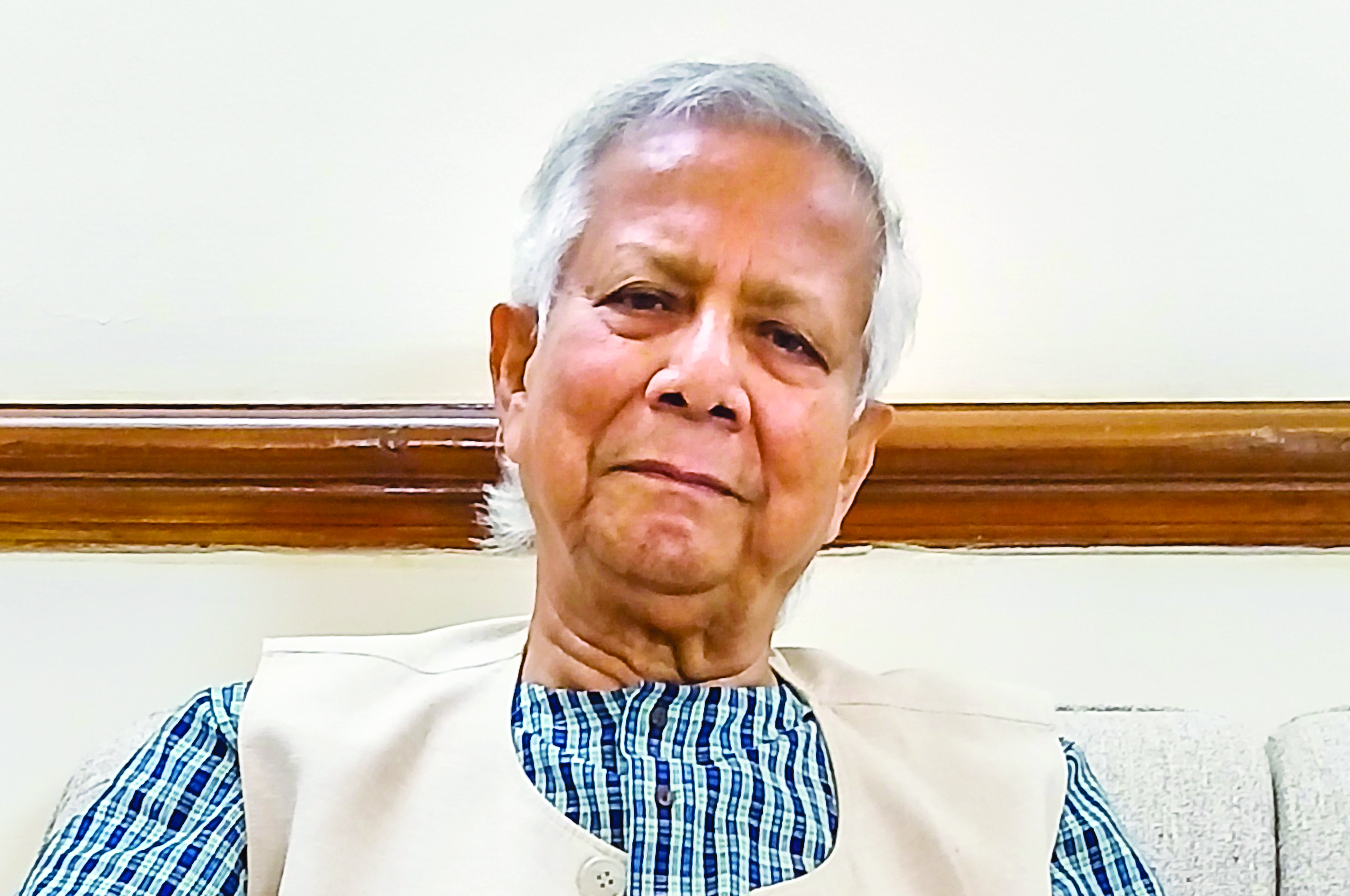Hasina’s remarks from India ‘unfriendly gesture’, she must remain silent: Yunus

DHAKA: Muhammad Yunus, the head of Bangladesh’s interim government, has said that former Prime Minister Sheikh Hasina making political remarks from India is an “unfriendly gesture”, asserting that she must remain silent to prevent the discomfort to both countries until Dhaka requests her extradition.
“If India wants to keep her until the time Bangladesh (government) wants her back, the condition would be that she has to keep quiet,” he said.
In an interview with PTI at his official residence in Dhaka, Yunus, who was appointed the country’s Chief Adviser after Hasina’s ouster, stressed that while Bangladesh values strong ties with India, New Delhi must move “beyond the narrative that portrays every other political party except Awami League as Islamist and that the country will turn into Afghanistan without Sheikh Hasina.”
“No one is comfortable with her stance there in India because we want her back to try her. She is there in India and at times she is talking, which is problematic. Had she been quiet, we would have forgotten it; people would have also forgotten it as she would have been in her own world. But sitting in India, she is speaking and giving instructions. No one likes it,” he said.
“It is not good for us or for India. There is discomfort regarding it,” he added.
Yunus was apparently referring to Hasina’s statement on August 13 in which she demanded “justice”, saying those involved in recent “terror acts”, killings and vandalism must be investigated, identified and punished.
This has been the only statement made by Hasina after she fled. It was posted on her US-based son Sajeeb Wazed Joy’s X handle.
Hasina resigned and fled to India on August 5 in the wake of unprecedented anti-government protests.
When asked whether Bangladesh has communicated its stance to India, Yunus said it has been conveyed verbally and quite firmly that she should keep quiet.
“Everyone understands it. We have said quite firmly that she should keep quiet. This is an unfriendly gesture towards us; she has been given shelter there and she is campaigning from there. It is not that she has gone there on a normal course. She has fled following a people’s uprising and public anger,” he said.
Yunus stated that the interim government is committed to ensuring justice for the people of Bangladesh against the atrocities, and justice requires that she be brought back to the country.
“Yes, she has to be brought back or else the people of Bangladesh won’t be at peace. The kind of atrocities she has committed, she has to be tried in front of everyone here,” he emphasised.
Referring to the recent incidents of alleged attacks on Hindu minorities in the country and India raising concerns about it, Yunus said this is just an excuse. “The issue of trying to portray the conditions of minorities in such a big way is just an excuse,” he said.
The 84-year-old Nobel laureate emphasised the need for India and Bangladesh to work together to improve their currently strained relationship. When asked about ways to improve the Indo-Bangla relations, Yunus said both the countries need to work together and it is on a downhill path presently.
Speaking about the future of bilateral treaties with India, Yunus said there are demands for a relook at certain treaties such as transit and the Adani electricity deal.
Yunus, said the issue of attacks on minority Hindus in his country is “exaggerated” and questioned the manner in which India projected it.
Yunus said the attacks on minorities in Bangladesh are more political than communal. He suggested that the attacks were not communal, but a fallout of a political upheaval as there is a perception that most Hindus supported the now-deposed Awami League regime.
“I have said this to (Prime Minister Narendra) Modi also that this is exaggerated. This issue has several dimensions. When the country went through an upheaval following the atrocities by (Sheikh) Hasina and the Awami League, those who were with them also faced attacks,” he told PTI.
“Now, while beating up Awami League cadres, they had beaten up Hindus as there is a perception that Hindus in Bangladesh mean Awami League supporters. I am not saying that what has happened is right, but some people are using it as an excuse to seize property. So, there is no clear distinction between Awami League supporters and Hindus,” he said.
Hindus, who made up 22 per cent of Bangladesh’s population at the time of the 1971 Liberation War, now constitute about 8 per cent of 170 million and have predominantly supported the Awami League, known for its secular stance.
Yunus said that when he met leaders of the minority community, he urged them to protest as citizens of the country with equal rights and not merely as Hindus.
“Even when I met members of the Hindu community, I had requested them: please don’t identify yourselves as Hindus; rather, you should say you are citizens of this country and you have equal rights. If someone tries to snatch your legal rights as citizens, then there are remedies,” he said.



